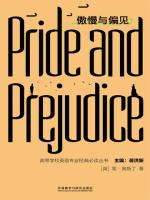The Timeless Glow
Beyond Pride and Prejudice: The Timeless Glow of Authentic Affection
With her razor-sharp wit and delicate prose, Jane Austen weaves a vivid tapestry of 19th-century English rural life, where marriage was often a pragmatic transaction rather than a choice of the heart. Pride and Prejudice, however, stands out as a quiet rebellion against this norm—its core is not just a love story between Elizabeth Bennet and Mr. Darcy, but a profound exploration of how humility can melt arrogance, and open-mindedness can shatter prejudice.
Elizabeth, with her quick tongue and unyielding spirit, refuses to bend to societal expectations of "proper" femininity; she dares to judge a man by his character, not his wealth or status. Darcy, initially trapped in his own haughty pride, learns to shed his condescension and prove his worth through quiet acts of kindness, not empty boasts. Their journey—from mutual disdain to deep admiration—teaches a timeless lesson: true love is not about perfect first impressions, but about growing with someone, and choosing to see beyond the masks people wear.
What makes the novel endure is Austen’s ability to balance social satire with emotional depth. She pokes fun at the absurdity of Mrs. Bennet’s frantic matchmaking and Mr. Collins’ obsequious flattery, yet never loses sight of the vulnerability beneath these characters—their fears of poverty, loneliness, or being left behind. In the end, Pride and Prejudice is more than a romance; it is a celebration of individuality, and a reminder that the most precious connections are those built on respect, honesty, and the courage to change.
需要我将这篇书评调整为更简洁的版本,方便用于社交媒体分享吗?Beyond Pride and Prejudice: The Timeless Glow of Authentic Affection
With her razor-sharp wit and delicate prose, Jane Austen weaves a vivid tapestry of 19th-century English rural life, where marriage was often a pragmatic transaction rather than a choice of the heart. Pride and Prejudice, however, stands out as a quiet rebellion against this norm—its core is not just a love story between Elizabeth Bennet and Mr. Darcy, but a profound exploration of how humility can melt arrogance, and open-mindedness can shatter prejudice.
Elizabeth, with her quick tongue and unyielding spirit, refuses to bend to societal expectations of "proper" femininity; she dares to judge a man by his character, not his wealth or status. Darcy, initially trapped in his own haughty pride, learns to shed his condescension and prove his worth through quiet acts of kindness, not empty boasts. Their journey—from mutual disdain to deep admiration—teaches a timeless lesson: true love is not about perfect first impressions, but about growing with someone, and choosing to see beyond the masks people wear.
What makes the novel endure is Austen’s ability to balance social satire with emotional depth. She pokes fun at the absurdity of Mrs. Bennet’s frantic matchmaking and Mr. Collins’ obsequious flattery, yet never loses sight of the vulnerability beneath these characters—their fears of poverty, loneliness, or being left behind. In the end, Pride and Prejudice is more than a romance; it is a celebration of individuality, and a reminder that the most precious connections are those built on respect, honesty, and the courage to change.



 京公网安备 11010802032529号
京公网安备 11010802032529号